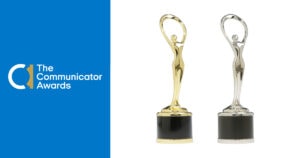In this post, Andrea provides a refresher course on business etiquette to her peers …
Hey young professionals, I think we need to have a huddle. In the past month or so, I’ve noticed some really odd behavior: I have had a cousin ask me the differences in forks in a formal place setting, a high school friend fail to send me a thank-you note for a wedding gift, a girlfriend scoff at me for leaving a tip in our hotel room for housekeeping and another question the necessity of tipping a valet.
 Now before anyone questions the company I keep, let me say that I hang out with some upstanding people. They were raised in great families and are nice and smart and polite and frankly, the best friends a girl could ask for. Which is why I am so confused.
Now before anyone questions the company I keep, let me say that I hang out with some upstanding people. They were raised in great families and are nice and smart and polite and frankly, the best friends a girl could ask for. Which is why I am so confused.
I asked around online and off to see what others had to say. While I hate generalizing, especially when it comes to speaking of entire generations, what I heard from many was that manners and basic business etiquette in people my age (20s) are, well – unpolished.
We should work on this. First, I believe that etiquette is important and necessary for one to be a respectful member of society. Second, I believe that etiquette speaks volumes of a person. If you care enough to represent yourself in the best light possible, in the most respectful way, you exude knowledge, class, thoughtfulness and competence-a great impression to leave with clients and networks, no?
Bottom line and I think we can all agree on this, is that whether we like it or not, we’re judged by our manners or lack thereof.
So lately I’ve been reflecting on my own etiquette and manners. Essentially, I am my mother’s daughter and she is her mother’s daughter which essentially equates to a lifetime of lessons and a minimum of four pieces of flatware per meal. Slap on a few years of sorority etiquette dinners and etiquette training from staff at the embassy in Paris, and, initially, I’d say I’m at least a step further than many in the right direction.
But really? Beyond the table I admit I need to brush up my skills. So, I’ve set out to find some pointers that I hope you will find as helpful as I have. In particular, the ones below have been adapted from Charlotte Ford’s book, ’21st-Century Etiquette’ (which I highly recommend).
Working a room at a networking event
Networking doesn’t come naturally to everyone but it’s necessary in order to be successful in business and in life. Know how to appropriately greet and introduce people will give you the confidence needed to make connections.
- Save the fist bumps, the fist pumps and the high-fives for close acquaintances, friends and happy hours. When making professional introductions stick to a firm handshake. Go a step further and be the one to initiate it-you’ll come off as eager and pleased to make introductions.
- Speaking of introductions, be sure to introduce yourself clearly with a first and last name and, if appropriate, provide context for who you are or where you work. When introducing other people, again use first and last names but also include a tidbit of information that could help spur mingling. ‘Heidi Strand, this is Bob Jones. Bob is a writer for ABCD Magazine, he writes about sail boats. Bob, did you may find it interesting that Heidi once sailed along the coast of Greece with Mick Jagger in a Laser II.’
- In Alpha Phi, we had a rule-when meeting new people, steer clear of the three B’s: booze, bucks and boys. Talking about drinking, unless in the context of a wine tasting or such is probably not a professional choice in conversation topics. Talking about money-yours or someone else’s, such as salaries the cost of an item, etc. is rude. Talking about the intimate details of your relationships with significant others or asking such of others is inappropriate.
- Never make assumptions in casual conversation. Should you have to eat your own foot, though, acknowledge your gaffe, apologize and move on quickly. Not sure what I’m talking about? Don’t comment on a pregnancy unless you’re 110% sure that someone is pregnant. Don’t bad mouth a company unless you’re 110% sure that everyone you’re talking to does not work for that company or have a spouse that does. You get the idea now, I’m sure.
Communications
We communicate regarding business all day long. You can trust me when I say that I have never regretted sending a personal note to thank or acknowledge someone. It’s a common courtesy that’s truly genuine and it won’t go unnoticed.
- Grab a box of personalized stationery and make out with it. It’s your new best friend. While e-mail thank-you notes are nice, a handwritten note demonstrates that you’ve taken the time to genuinely thank someone in a personal way rather than three seconds to shoot off a generic message electronically. When do you send a thank you note? When someone has done something for you or gone above and beyond is the general starting point. In business, these notes are also appropriate for the addition of a new client, the close of a project, a referral, a reporter that responded to your pitch or published your release, or similar milestones. Handwritten notes should also be sent to acknowledge the successful launch of a business, a promotion, positive media coverage, a death in the family or the office, holidays and more.
- Acknowledge e-mail and phone messages as well as instant messages and direct messages through Twitter in a timely fashion, even if it’s just to say that you cannot immediately respond to a question or request.
- Don’t you dare answer that phone or text during a meal or a meeting with a client, unless it’s an emergency. In which case, you should tell said client that it is an emergency and ask to be excused for a moment. Simply saying that it’s an ‘important’ call can be interpreted as a ‘more important than you‘ call.
Tip for tat
While it’s nice to think that people do things out of the kindness of their hearts, all service people should be compensated with a tip. Skipping out on the tip is a sure way to leave a bad impression with clients and colleagues and even worse, failing to tip for a service paid for by your employer reflects poorly on them, too.
- Restaurant wait staff: 15-20 percent of the bill
- Bartenders: 15-20 percent of the bar tab
- Coat checks: $1-2 per coat
- Valets: $2-5
- Rest room attendants: $1-2
- Food delivery people: 10 to 20 percent of the bill
- Taxi drivers (unless you’re in France, then round up to the nearest Euro-FYI): 20 percent of the fare
- Caddies: If you’re a guest at someone else’s club, you pay the greens fee and your caddie’s fee unless you are also a member of the course in which case you only repay your host. Clubs where members are billed later for greens fees, guests pay both caddie’s fees.
- Salon staff, like colorists, stylists: 20 percent
- Airport luggage carriers, shuttle drivers or hotel bellhops: $5 per bag
- Housekeeping staff: $5 per day
- Doormen: $1-2 if he/she helps you hail a cab or helps with your bags
That’s all I think I’ll cover in one post. Do you have anything to add? I’d love to hear it-leave your advice in the comments below!



